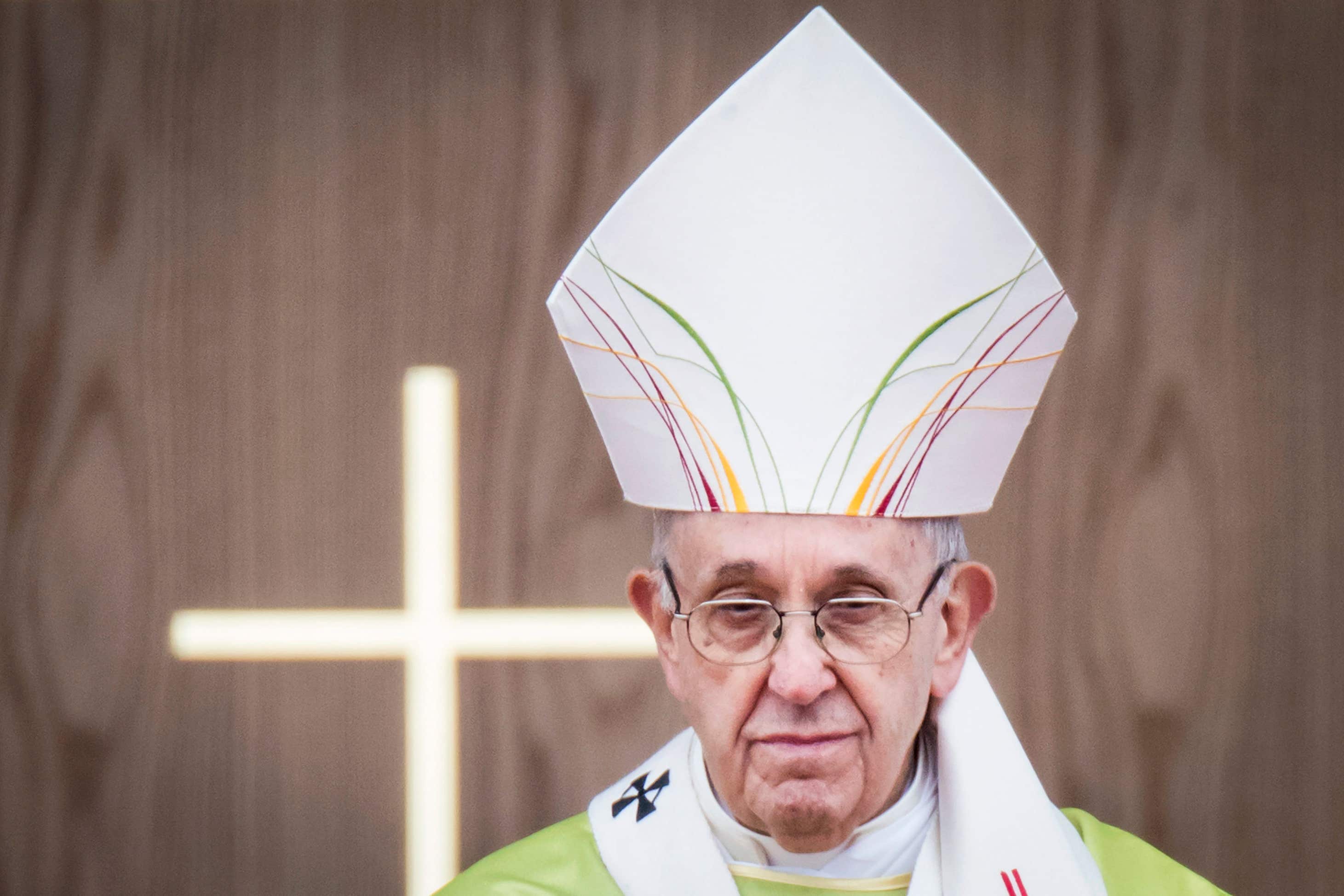Pope could help reduce carbon emissions by reinstating meat-free Fridays – study
Cambridge University researchers considered the potential benefit if even a minority of the world’s Catholics returned to the traditional practice.

Your support helps us to tell the story
From reproductive rights to climate change to Big Tech, The Independent is on the ground when the story is developing. Whether it's investigating the financials of Elon Musk's pro-Trump PAC or producing our latest documentary, 'The A Word', which shines a light on the American women fighting for reproductive rights, we know how important it is to parse out the facts from the messaging.
At such a critical moment in US history, we need reporters on the ground. Your donation allows us to keep sending journalists to speak to both sides of the story.
The Independent is trusted by Americans across the entire political spectrum. And unlike many other quality news outlets, we choose not to lock Americans out of our reporting and analysis with paywalls. We believe quality journalism should be available to everyone, paid for by those who can afford it.
Your support makes all the difference.The Pope could bring about a major reduction in global carbon emissions by urging Catholics to return to the traditional practice of not eating meat on a Friday, a study suggests.
Cambridge University researchers assessed the impact of a return, in 2011, to meat-free Fridays for Catholics in England and Wales.
While only around a quarter of Catholics in England and Wales changed their dietary habits, after bishops called on congregations to do so, this saved more than 55,000 tonnes of carbon a year, according to the study.
If the Pope was to reinstate the obligation for meatless Fridays to all Catholics globally, it could be a major source of low-cost emissions reductions. Even if only a minority of Catholics choose to comply
The research team say this is equivalent to 82,000 fewer people taking a return trip from London to New York over the course of a year.
They say that the environmental benefits could be scaled up if the Pope were to reinstate the obligation to Catholics around the world, or if bishops in other countries made the same call.
“For instance, even if only the United States Catholic bishops were to follow suit, the benefits would likely be 20 times larger than in the UK,” the study’s authors wrote.
The obligation to forego meat on one day of the week, which has ancient origins and is backed by Canon Law, was re-established in England and Wales after a 26-year hiatus, according to the study.
The overall Catholic share of the British population has remained largely stable for decades at just under 10%, the researchers say.
They added that the return to meat-free Fridays had “no discernible impact” on service attendance.
The current Catholic leader, Pope Francis, has called for “radical” responses to climate change.
Pope Francis has already highlighted the moral imperative for action on the climate emergency
The study’s lead author Professor Shaun Larcom, from Cambridge’s Department of Land Economy, said: “The Catholic Church is very well placed to help mitigate climate change, with more than one billion followers around the world.
“Pope Francis has already highlighted the moral imperative for action on the climate emergency, and the important role of civil society in achieving sustainability through lifestyle change.
“Meat agriculture is one of the major drivers of greenhouse gas emissions.
“If the Pope was to reinstate the obligation for meatless Fridays to all Catholics globally, it could be a major source of low-cost emissions reductions.
“Even if only a minority of Catholics choose to comply, as we find in our case study.”
Traditionally, the practice of refraining from meat one day a week saw many Catholics – and large sections of the population in predominantly Christian countries – turn to fish on Fridays as a protein substitute.
The researchers based their analysis on a nationally representative survey commissioned in 2021, which had 5,055 respondents, of which 489 identified as Catholic, and on the National Diet and Nutrition Survey, conducted each year by Public Health England.
For Christians, the practice of meat-free Fridays dates back to at least Pope Nicholas I’s declaration in the 9th century.
Catholics were required to abstain from eating meat on Fridays in memory of Christ’s death and crucifixion.
However, fish and vegetables, along with crabs, turtles and even frogs, were permitted.
The researchers point out that the practice was observed so fervently among some American Catholics that it led to the invention of the Filet-o-Fish meal by the burger chain McDonald’s.